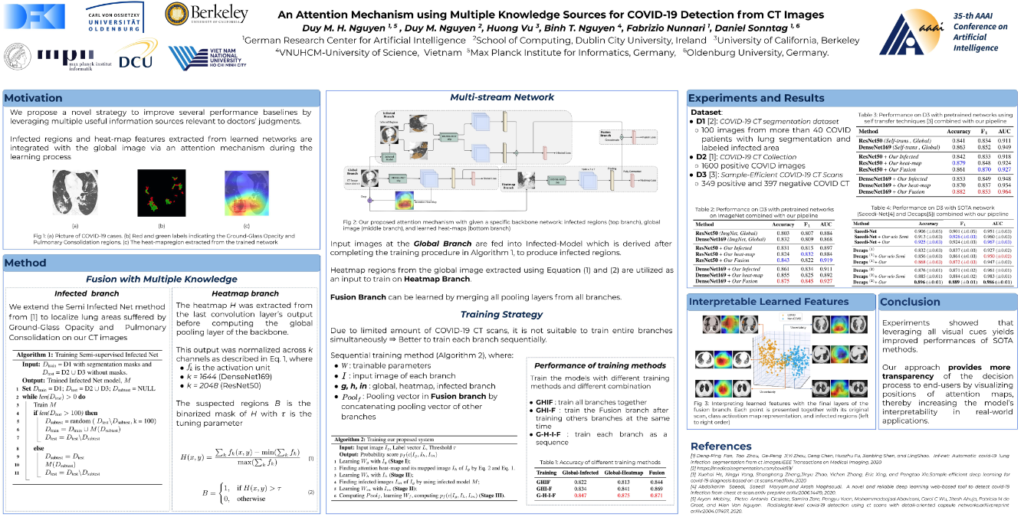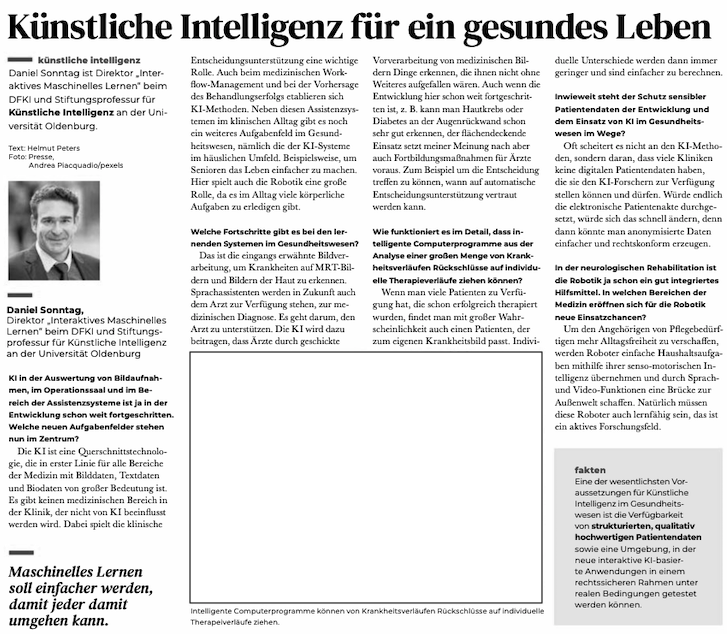On November 21 and 22, 2025, the interdisciplinary congress InterSurge on the digital future of medicine, took place at the event location CORE in Oldenburg. Experts from medicine, science, technology, business, and politics came together to discuss new impulses for a sustainable healthcare system. Keynotes and presentations offered practical insights into current developments in AI, sustainability, and digital transformation. In workshops and hands-on sessions, participants discussed specific applications from areas such as AR, VR, and robotics—accompanied by live demonstrations and interactive formats.
The Interactive Machine Learning team presented its latest research in the CORE IML showroom through video demonstrations, offering visitors insights into innovative projects, including:
- Ophthalmo AI – A Clinical Decision Support System to support ophthalmologists in the treatment of Diabetic Retinopathy and Age-related Macular Degeneration
- Mulitlayered Clinical Semantic Annotation – advanced medical data analysis
- CBM-RAG – an interactive system that leverages Explainable AI (XAI) and Multi-Agentic Retrieval-Augmented Generation (RAG) to enable transparent and trustworthy radiology report generation.
InterSurge 2025 was a very successful and well-attended congress, highlighting the strong relevance of medical AI solutions.





